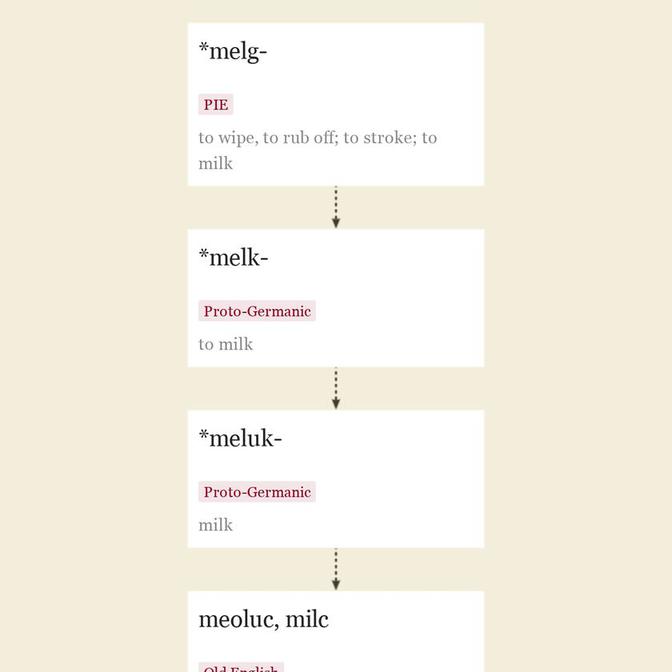milkmaid n.
"
Entries linking to milkmaid

"
Of milk-like plant juices or saps from c. 1200. Milk chocolate (eating chocolate made with milk solids, paler and sweeter) is recorded by 1723; milk shake was used from 1889 for a variety of concoctions, but the modern version (composed of milk, flavoring, etc., mixed by shaking) is from the 1930s. Milk tooth (1727) uses the word in its figurative sense "
c. 1200 (late 12c. in place names and surnames), "
From c. 1300 as "
Her Mamma was a famous Fryer of Fishes,
Squeezer of Mops, Washer of Dishes,
From tossing of Pancakes would not Shirk,
In English plain, a Maid of all Work.
But don't mistake me, by Divinity,
When I mention Maid, I don't mean Virginity
[from "Countess of Fame and her Trumpeter," 1793]
In reference to Joan of Arc, attested from 1540s (French la Pucelle). Maid Marian, the Queen of the May in the morris dances, also one of Robin Hood's companions, is recorded by 1520s, perhaps from French, where Robin et Marian have been stock names for country lovers since 13c. Maid of Honor (1580s) originally was "
updated on January 17, 2019